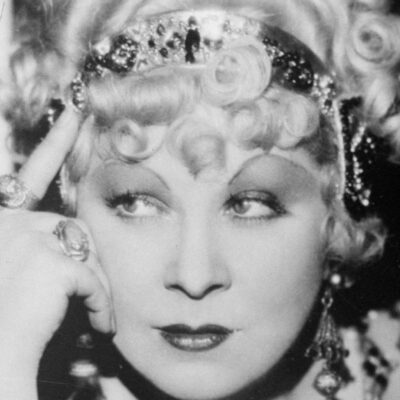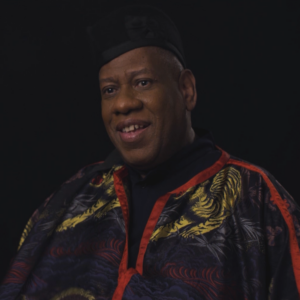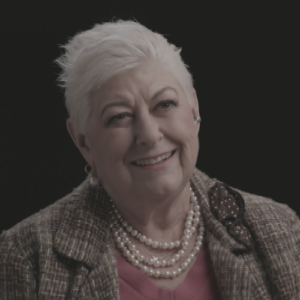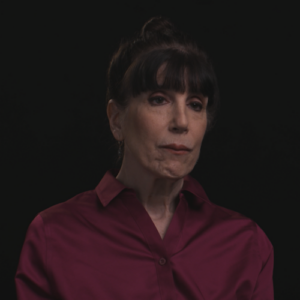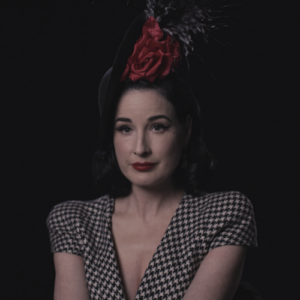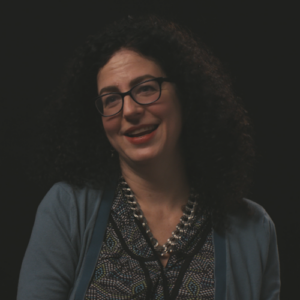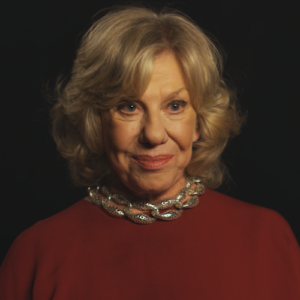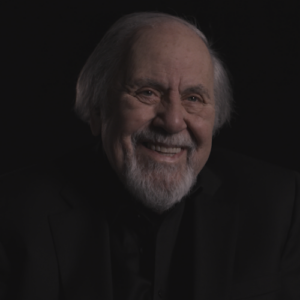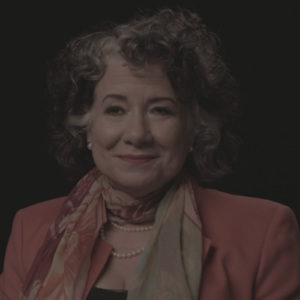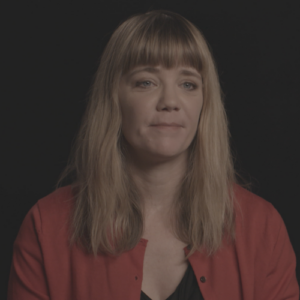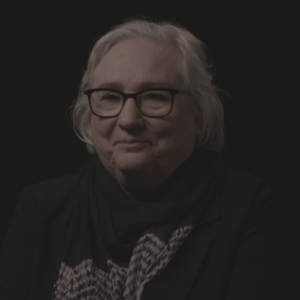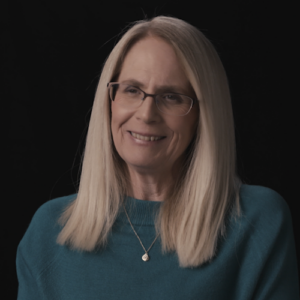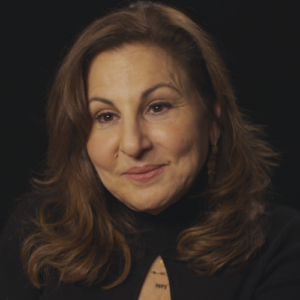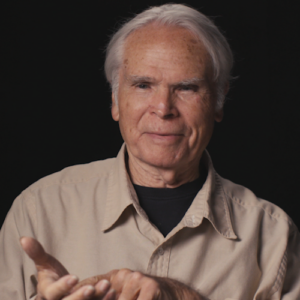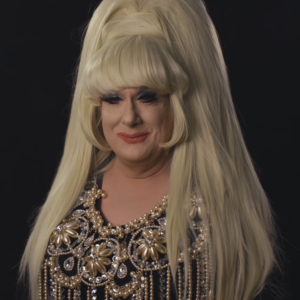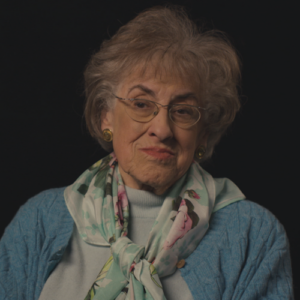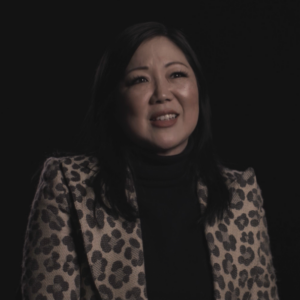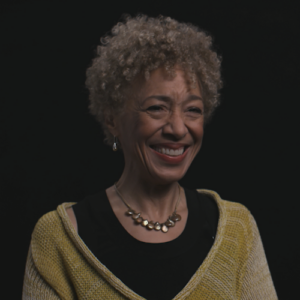Interviewer: Why is taboo comedy important?
Mel Watkins: I think comedy in general is more or less motivated by someone reacting to the status quo. And I think that people who have written about comedy talk about the fact that comedy is always based on the reality of a specific time, and it’s a reaction to that time. And generally speaking, if it’s high comedy, at least it’s an attempt to expose hypocrisy, to deal with the wrongdoings that are apparent to some people of that time. And it use in other ways. It can be low. Comedy can be used to disparage other people and to to put other people down to a certain extent. But it always wants to push the edge. I think comedy always tries to to widen the scope of the viewpoint or perspective of a specific time. And I think that’s one of its functions and something that it does best. It forces us to think outside the box to a certain extent.
Interviewer: What do comedy pioneers have in common? Like you’ve mentioned in Make Them Laugh here. Talk about their marginality.
Mel Watkins: I think to a certain extent it helps if you’re a comedian to have an outside perspective. And I think that’s one of the reasons why Jewish Americans and African-Americans are, generally speaking, high up on the list of accomplishment in comedy because they are the margin of the outside edges of society. And they have been moved to those edges by the mainstream to a certain extent. So they have to take a second look at it. I mean, we could in terms of African-Americans always go back to what Dubois talked about is the double vision or double consciousness that African-Americans have, for instance, which forces them to take a look at themselves in relationship to the mainstream and therefore to see it in different ways. And many comedians, Chris Rock, talked about having a third eye. Many comedians have talked about the fact that the comic perspective is different, that you see things differently and that that comes I think from that marginality. It comes from being outside of being somewhat of an outsider in relationship to the mean to the mainstream.
Interviewer: So in what ways was Mae West marginalized?
Mel Watkins: I think for one thing, that women in general were marginalized during that time. African-Americans and women suffered as much bias as anyone in America, particularly at that time. We’re talking about the turn of the 20th century. And certainly women at that time were suffered or were targeted for bias in on a daily basis. It was assumed that women were inferior in the society at that time. The inability to vote is one aspect of it. They weren’t able to vote until the 1920s, actually even later than African-Americans. But the fact that men considered themselves superior to women and that women were considered to be an inferior gender. So I think that is one of the reasons. And for a woman who was ambitious and forthright and wanted to be to achieve that would be the impetus she would need to move on and try to attempt to be successful in show business in comedy is one of the ways you do that by making fun of the oppressor. To a certain extent, again, African-Americans did it all along, and I think women started to do it. It was more difficult for women because at one point it was more difficult for women, and in one sense it was more difficult for women. If we could talk about this later, I can point out that there were other ways in which women were who were more free or experienced more freedom in terms of what they could do, even though they were considered to be inferior in the movie industry. For instance, for instance, they were allowed a bit more freedom than African-Americans.
Interviewer: How do you see that expressed in her performance, the thought of pushing back against that?
Mel Watkins: I think you have to put it first of all, you have to put it into into its environment, into the social environment of the times in entertainment. If that time had just moved from blackface entertainment, minstrelsy and blackface entertainment to vaudeville from variety shows, which were pretty bawdy and women were not even usually invited or welcomed at those performances. In fact, they were prostitutes working on the third floor. In many cases, this was a pretty bawdy atmosphere. Women were portrayed by men for the most part in most of those variety shows, even though on the legitimate stage by that time, there were some women working in variety and in comedy, not too many women or even functioning or even performing, so that she would have to she would have had to step into that situation and deal with it from that point of view. She would have to have dealt with the fact that women, for the most part, have been played by men, transvestites, female impersonators were very popular in minstrel shows and had been since the 1870s, 1880s. And that went on into the early 20th century in variety shows. To a certain extent, when vaudeville comes in, something changes. To a certain extent, some women are or women were gradually integrated into their shows because it was they were shows were aimed at a broader audience, had a more family oriented audience to a certain extent. So you have that that setting for her appearance, her emergence as a comedian. And I think that she reacted to it by, in one sense, almost parodying the female impersonators who had been very popular in minstrel shows and in variety shows at the time. So I think that determined to a certain extent, the persona that she adopted for her stage appearances and for her career.
Interviewer: Would one expect assumptions about women working in vaudeville and those in that sort of earlier days but did only a certain kind of woman do that? Or was it considered just general family fare?
Mel Watkins: Most women working in comedy at that time were considered either mannish or almost prostitutes, basically. In fact, entertainers in general were not considered very reputable in the in the general society of in the mainstream. But women in particular were looked down upon if they were actresses to a certain extent, certainly at the turn of the century. This starts to change, obviously, as we get into the 1920s. It’s starting to change radically by but at the turn of the century and when she began in 1907, I guess it was it was the outside judgment of women was pretty critical. And it was they were considered to be, first of all, outlandish, not reputable and of. A Well, the character was question put it that way. I was trying to think of a way of saying that without going off into something different. Anyway, the character was was questioned highly by the outside world at that point. Anyone in show business, any woman in show business at that time. So she had to deal with that aspect of it.
Interviewer: So that’s interesting because that, you know, there’s a social commentary in her humor. I mean, even early, do you think is some of it pushing back against that or is it.
Mel Watkins: Yes. And I think that basically she was again, she was satirizing or parodying the female impersonators who were men at that time. She was actually making fun of them to a certain extent and taking it a step further, even ensuring that a woman could do this. And I think that she realized that this was a ploy that would get would lead to popularity or lead to success. And the fact that she was quite different, she knew to begin with. I would think that even stepping into showbusiness was to invite criticism as a woman. So why not take it a step further and actually satirize the impersonators who had played women on stage prior to her emerging prior to her starting or taking to the stage?
Interviewer: And was that new Were other people doing that at the time?
Mel Watkins: There were there were a few, but not that many women were performing at that time. There were a few comedians who came along, but women in comedy, specifically in comedy, were not that that popular. I mean, some of the ones who came along, Fanny Brice and Jean Shepherd, I guess, was was another. But these women were was dealing with the same problems, were dealing with the same outside criticism. So she was a pioneer. Certainly she was a pioneer in doing what she did. Even someone I compare her often to Moms Mabley, because I think there is a very real similarity between the two. They both enacted stage personas that allowed them to be critical of their status as women in the society and to talk about it in a comedic fashion, but to deal with it almost directly. Moms had to do it a little bit differently than Mae West did, but Mae West did it in her own fashion and was very successful at it, obviously, but did it in a more direct fashion. And she did it by I think by adopting this this mannish posture, by adopting some of the comic attributes, in fact, that were common on the video Bay Circuit. Let’s see the Black Entertainment Circuit at that time, which was quite different than vaudeville, and not that many black performers were actually in vaudeville. Only the most polite, only the most. Only the least controversial. Put it that way. Certainly not those comedians or performers who were who stepped outside the box, who were more direct with their humor, who dealt with social issues. Few of them ever got to the vaudeville stage. They were. They performed on the black circuit entertainment circuit. And the Tobia, which is the theater Owners booking association, was the place that they performed. That comedy was primarily aimed at black audiences. And therefore, the comedy or the entertainment that was available there was more direct, less censored than mainstream vaudeville comedy because because vaudeville had had been, in fact, established to to actually be an option to the rather body variety shows that were that were current at that time, that were the general status of entertainment at that time with the general the general thing those variety shows offered what was commonplace at the time that that entertainment was bawdy. It was often very direct, profane, ironic on occasion. Vaudeville attempted to do something different. Many performers were told not to use curse words. They were strictly and often strictly censored about what they could say. Mae West found a way to deal with it with innuendo and by dealing with a mannish posture. Again, that was quite different than anything that anyone had seen at that time, I think. I don’t think there were any predecessors for her. I think she was generally speaking, she was unique. So that would be my feeling about that in general.
Interviewer: It was interesting you talk about her innuendo, but you’re saying that she didn’t really see any of Burt Williams reflected it. Can we talk about.
Mel Watkins: Sure.
Interviewer: I guess first you could just say who he was, why he was so important, that sort of early 20th century entertainment.
Mel Watkins: Okay. Would Williams was many people would would insist one of the finest comedians of the time. Many people thought that he was the finest comedian of that time and one of the finest comedians of all time. He had started out working with in a team with Williams and Walker. George was very Bennett’s partner, and when his partner passed away, Bert Williams became or really in it, into the limelight as a single solo performer. And by this time he had started to use pantomime and he had studied with with people in Europe and really brought his his ability, as is a kind of minus to another level. So he started to do some different things. He also was severely restricted. Restricted in what he I’ll say that again, he was also very or really restricted in terms of what he could do on stage. His comedy had to be indirect. Had he tried to do any of the things that Mae West did. That type of outright suggestiveness, he would have probably been watched, frankly. So there is the the comparison is quite different. He was working with a cloak, basically, and with obvious restrictions. He was. My own feeling about him as person episodic that he adapted was the wise for that as he played this this Sambo character, the ignorant darkie, as he called him to the fullest extent. But underneath that he was able to suggest that that character was a human being. If that character had some wit and had a real philosophy. And that was what was amazing about Bert Williams, because he was staying within the limitations of that character, that Sambo character which had come out of minstrelsy. He was able to invest that character with a sense of humanity that people could see and to bring a sense of reality to the character without ever disturbing the people around him. Mae West, on the other hand, obviously disturbed many people, and was it, in fact intended to disturb other people? Her comedy was much more direct and much more in-your-face than Bert Williams, even though she did use some innuendo. But that’s the question of the times, because are innuendo the type of venue, innuendo that she regularly used in her. Comedy at that time was unheard of. People simply didn’t do that in public venues at that time. Brian Williams could never have gotten close to that TV. The closest he would ever get to that is one of his jokes about talking about the burden that a camel has. And I’m I’m paraphrasing this obviously, because I don’t remember the joke exactly, but he talked about the burden that a camel might have and he talked about comparing himself to that and says if one if a feather had been added to that, that he would have reacted violently. This is as close to he gets to talking about the real problems of African-Americans at that time. And Mae West, on the other hand, was talking specifically about or using innuendo or suggestiveness to show that she was breaching or stepping across this line between male and female and the powers that they might possess, the independence that they could normally possess. But Williams seldom even suggested that he had the kind of independence white males had, which would have been the real comparison. And that just simply does not exist. Which he may have picked up from Bert Williams is is some of the slight subtlety she had to use some of that. I’m sure she picked some of that up. But basically we’re talking about one person who was more direct and assertive and one person who was indirect and slightly subversive and a different matter altogether. I would hardly call me with subversiveness Sly. It was more in your face and direct. So that to me is the difference between the two.
Interviewer: Your point. Yeah, that makes sense. Um, I think some of the comparison made between them is, is in terms of their way of making social commentary on the injustices around them. Um, not necessarily their actual act.
Mel Watkins: Bert Williams had to use what some people call backstage and in front stage humor. Front stage humor for Bert Williams was the typical darky character that he portrayed in blackface, and it was a character that was quite common on the stage at that point, had started in minstrelsy and had gone on for 60 years since the 1840. In fact, before that, for 70 years since the 1830s. So Bert Williams was really reenacting or dealing with a character that had been around. What he did was to invest that character with some common sense and underlying common sense. And that common sense may be what which people are talking about when they say that there was some social criticism there. There was a suggestion of it in the sense that the character had common sense, but never a suggestion on stage that he would in any way challenge the superiority of white males, whereas Mae West often challenged the superiority of white males. One of my favorite jokes by Baker was not the one about it. It’s not the sexual joke. It’s I think in one of the movies, one character, male character says, I’ve changed my mind. And she says, Does it work any better now? So this is a direct assault. If Bert Williams had attempted to do that kind of joke, he would have been brought up on stage. It couldn’t have happened. So there’s a big difference to me.
Interviewer: You know, the idea of her as opposed to somebody who looked like Sophie Tucker or was maybe, you know, deliberately making herself look frumpy for somebody like me to make that commentary. What is it that makes it palatable? Because you’re saying she’s you don’t consider her an attractive woman, but she that’s what she’s presenting herself as. Can we just explore that?
Mel Watkins: Yeah, I think I mean, I’m not she wasn’t an attractive woman, but she was. She certainly was not. A reflection of the type of attractive woman that was a movie star at that time. She was bigger. She was at that time, she was as big as Sophie Tucker was thought about, but she was a large woman at that time. The image of women was to be smaller, to be slighter in structure. So so that that type of sexuality was not there. But she did, on the other hand, make herself up with corsets and so forth to get this hourglass figure. And I think that at least one critic described her as a is a. A stumpy, a short, stumpy blond woman who wore a mask on stage or master herself to look as if she were sexual. Not so much as being alluringly attractive, but being outspokenly sexual. And in terms of the hourglass figure exaggerating or accentuating her breasts and hips and so forth. In that sense, she did promote sexuality. So I can understand when people talk about her as being a sexual figure, but it was almost a caricature of sexuality. It was not. It was not. Certainly didn’t correspond to the ideals of femininity that existed at that time. And if you put it in place in terms of what existed in terms of other women, it was not attractiveness is not the right word. Sexuality, latent sexuality is perhaps a better word. And she did do that very well and emphasized it both in her appearance or walk or in the way she talked.
Interviewer: And that blatant sexuality that’s necessary for the kind of humor that she’s putting across. Or did they go hand to hand?
Mel Watkins: I think they went hand in hand again. I’ll go back to her using it as a way of satirizing males view of women at the time. Because what she’s doing, it seems to me, is a parody of the fantasy that males have of sexual women, not of the demure, so-called attractive woman who would be the type that one might seek to marry, certainly in terms of the conventions of that time, but of someone who is blatantly sexual in a different way and has spoken about that sexuality almost veering into the into an erotic area of harlots to a certain extent. It’s she’s presenting a character who verges on being a harlot in terms of the conventions of the time. That’s so much now. Women have free, things have changed. But if we if we go back and take a look at what was going on at that time, she must have been looked upon as basically as almost the harlot. They’ll be the way that people looked at women at that time.
Interviewer: Well, so given the conventions of the time, how does she get away with it? How does she get away with making that kind of commentary, having that kind of overt sexuality, kind of rubbing it in the audience’s face? Why isn’t that too much?
Mel Watkins: I think the tricky thing about it is, again, with to go back to the view of African-Americans and the view of women at that time, both were the targets of extreme prejudice and extreme bias. With African-Americans, it was there was a double view of African-Americans. That is, they were looked at as threatening, but they were also looked at as childish. There was a so-called Charles Savage image of African-Americans, and women were looked at as as being, on the one hand, weaker and dimwitted, not as smart as men. But on the other hand, powerful in the sense of their emotions and their sexual prowess. So you have these two things going at the same time. So she, to a certain extent, could get away with it because she was playing up one side of the double image of women at that time. She was playing up to the image of the sexual prowess process in doing that in a way that was funny so that people could deal with it. The fact is, she did shock at the same time that she appealed. And it was it’s a complicated situation. It seems to me that it at that time you had this image of women as being certainly in movies, you had a lot of nudity and in movies around that time, around the turn of the century when films first started, there was this image of women as being a threat, as being a threat because they could lead men these these pure white males of the time into excesses that they tended places moral, moral quandaries that they didn’t want to deal with because of the pure of sexuality of women. And I think that she played upon that to a certain extent. She was accepted because she did exaggerate that she made that a part of her act. So that was appealing to them. At the same time, she was not going along with the image of the dimwitted, powerless woman. So she was. Confusing and to a certain extent there was a mystique about her because of that, I feel. And that mystique came from that. It came from the fact that she did. Evoke a reaction to both things. He evoked a reaction to the fact to the independence of the the thought that women were not independent, that they were dependent and dimwitted and couldn’t take care of themselves. And to the fact that she used her sexuality in a different way and she used it independently. So there was mystique. And I think that it was confusing. It’s a very complicated situation to ask why she got away with it for a while. And she did for a while, but it changed. She didn’t get away with it for ever. There was a change in the attitude towards me with I think at first she it was controversial. She shocked and people couldn’t believe what they were seeing. And after a while, it became something that the moralist in the country decided had to be stamped out in some way or at least contained.
Interviewer: So her character meant to appeal more to men or women, or was it not really about that?
Mel Watkins: I think her character was I think she she intended on start again. I think that she. Created that character, that persona to appeal to men because she knew men were in power. She was an ambitious woman. She knew what she was doing. She was not she didn’t stumble into this persona, this this particular way of acting on stage. She figured it out herself and figured this is the way to do it. And to be successful, she had to appeal to men. So she knew she was appealing to men to a certain extent. I think secondarily, women some women were found it interesting. I think she shocked a lot of women because she was so overt, so controversial. And I think women, many women or most women probably had bought in to the subservient dependent stereotype that existed at the time. So she would have been disruptive to their lives and probably not very appealing to them. I would think. I think that the real appeal was to men, and I think that she was a trickster to a certain extent because she was playing this or presenting a persona that masked her real intent. To a certain extent, that is that the intent was, first of all, to be independent, successful. And secondly, to parody satirize the male posture in the society. And I think that’s what she wanted to do. And I think she found a way to do it successfully and to make money at the same time.
Interviewer: That’s great. Thank you. Well, what was kind of a little bit but how would you describe the Mae West persona? Somebody who had never heard of her.
Mel Watkins: Whenever I looked at her and I units before starting it, before starting to really think about Mae West on a level of what she was trying to do. My own feeling had been that Mae West came off to me as a rather mannish figure. The persona was one not so much of a of an alluring sexual woman, but of a woman who was in fact exaggerating everything about sexuality to the extent that it’s it almost becomes a turnoff. It almost becomes impenetrable, because what she has done is to exaggerate it to such an extent that the male, any male that she’s encountering has to feel somewhat inferior. It’s going to throw them off balance. Totally. Again, going back to the conventions of that time, because women simply didn’t do that. Women didn’t didn’t express themselves as boldly as directly as she did, so that men would have reacted to that, It seems to me, with some hesitancy, some wariness, some some sense of of being threatened basically by her as a person. And I think she intended it. I think that the walk that she had decided to adopt was apparently based on her having observed and being mentored by some female impersonators, some people. I also read that it was I think some people call it a temple walk and trying to associate it with blacks. And I think that came from General Watson’s book I’m not sure about or commentary about job losses, but at any rate, I never saw it as that. I saw it as and when I looked at her and the way she carried herself on stage, it was a challenging work. It was it was a walk that said, I don’t think you can handle this. Basically is what she was saying to any male who approached her. And it was I mean, this is apparent in some of the suggestiveness of her jokes also. But the work also reflected that it was give us a direct challenge. She was challenging. She was also parodying some of the aspects of those female impersonators whom I’m sure she found to be a little bit mannish, a little bit over-the-top. She probably was offended by some female impersonators and by the fact that they were taking away or trying to pretend or certainly suggesting the way women are in real life. And what she what she did was almost a parody of that. On the other hand, as I said, well, I shouldn’t do that. On the other hand, I think she was also adopting some of the assertiveness that she did see in the black community with certain blues, blues singers and so forth. They were, I mean, Bessie Smith and some of some of the singers at that time certainly were direct, at least on stage, at least in their performances with blues lyrics and so forth. We’re very direct in what they did. Even butter, beans. And Susie, the character Susie, was a very direct woman who challenged butter beans at all times. I think she picked up on some of some of the demeanor, some of the the the stage presence of those black performers, female performers. And part of that was because of the difference in the attainment entertainment fare on the job and involvement she had taken to a certain extent some of the characteristics of Toby a performance and brought it to vaudeville. And she could do it because she was not black. Whereas black performers were normally the black performers who were most successful on the TV circuit, most direct in their humor, were not invited to perform on vaudeville. Pigmeat Markham, for instance, was not a vaudeville performer, could never have been successful or probably never have been very successful on vaudeville because he was too direct, he was too profane. There was a body, and it’s about his humor that wouldn’t have been allowed in vaudeville and vaudeville. I think that she did adopt some of those characteristics and use them for her own purposes.
Interviewer: There was something about just the idea that she took her her concept of feminism from those black Latino designers, the ones who, because of the topics that they sang about, you know, it’s not marriage and children. It’s about.
Mel Watkins: Yeah.
Interviewer: Can you talk about that a little bit? Just make that connection.
Mel Watkins: I think that her approach to the stage was to present something different than or something that was atypical for the vaudeville stage. It was an image of women that was different. And I do think that she may have picked up again some some of the characteristics that were often seen with black women on stage at that time, because black women tended to be more assertive, more direct in their dealing, in their sexuality, in their dealings with their sexuality and so forth, because of being, again, marginalized as as people, marginalized as a community. And being living in the community is much more raw than a community that did not adopt and deal with the niceties, the the masking of real desire, of raw desire that was commonplace in much of middle class America. At least the attempt to do that, and certainly in the media, there was an attempt to it to pretend that that those niceties were realities and that people were that people never did sink to the level of raw sensuality and so forth, that you read some of the books that came out of that time and seen some of the things were going on in film at that time. I certainly went to went to VOD, went to vaudeville shows. You would have seen or seen a reflection of an America that was a little bit different than what really existed on the black in the black community. Something else existed. What was going on in the black community was more raw, less pretense. And I think that she really felt that this was something she could bring to the stage for her own purposes. And again, this to me, this is not unusual. I think that many mainstream performances, performers had adapted aspects of black culture for their own purposes. Certainly, I mean, obviously in minstrelsy it happened with black male, with white males putting on blackface and pretending to be black and allow them to. In fact, some social critics would say that what minstrelsy did was allow white males to unveil their real passions, the real underside of their personality. They could get away from the restrictions of Western culture and deal with the primitive passions that lie underneath. To a certain extent, Mae West is doing the same thing with a female character because what she’s doing is getting away from masking the niceties that were expected in mainstream society, that were conventionally accepted in mainstream society for women, and showing something was entirely different, showing it in a different way. And to that extent, by the 1920s, certainly some women, some mainstream women started to agree with her to find it appealing and. There was there was a movement to that to that side of the spectrum at a certain point. It it was basically an urban country situation in cities. People were moving towards a different lifestyle and part of their lifestyle had to do with black culture was adopt an adoption of black culture. And I think that she is representative of itself. It follows in the footsteps of minstrelsy and follows in the footsteps of what white males did with black marriages. Also, she’s able to unleash a side of her personality that she couldn’t have done had she adopted a more conventional posture on stage.
Interviewer: So that’s great. It sounds like you’re giving her a little bit of credit for liberating women in their twenties.
Mel Watkins: I think she did, incidentally liberate women. I don’t think that was her intent. I think that what she was doing was I was dealing with she was dealing with her own ambition to a certain extent. She found that. She I guess she found that she needed to open up to reveal or unmask her own inner core, her own sense of being a real person. And I think that’s what humor or comedy finally does anyway. It’s always pushing towards that. The greatest comedians, I’ve always pushed towards a kind of honesty, a revelation of what’s really going on and dealing with hypocrisy and wrongdoing in a society. High humor, Andre Bergson said, is humor that unveils that, that shows self-scrutiny and the ability to look at who you really are and to unveil it, to be honest about it. And comedians do that. And I think to a certain extent, she was doing that. I don’t think she had social aims of uplifting women. I think that this was a secondary consequence of what she did.
Interviewer: But it was somewhat of a consequence of which I don’t think she intended it either. But it does seem like it had that effect.
Mel Watkins: I think that a number of things were happening. I think not only did her act reflect that or have that effect, but in the society itself. We’re also talking about the 1920s when she really becomes popular that you have now people flocking to Harlem to take part into it, to go to clubs in Harlem and to look at African-Americans as being exotic and free and primitive. And she basically fits into this entire social movement. I don’t know that she created the movement. She was a part of the movement. She was one of the people who flocked to the Cotton Club in Harlem. It was with white celebrities and watched those shows with all black performers when blacks were not allowed in as patrons. So she was a part of this this whole movement that occurred in the 1920s. And I think she she was as a woman, certainly as a female, she adopted many of those characteristics more completely and more thoroughly than than many other and most other women. In fact, I can’t think of anyone else who really did it. Any celebrity who really did it. I’m sure that there were many people who did, but not celebrities. There is this there’s a story, something that when I was doing on the real side, something Stumpy was a comedy group, black comedy group, and they were talking about the fact that Mae West and Moreno, Drake and a few other people were talking about people who who often socialize with with blacks during that time. So she was also a socialite, someone who stepped over the color line occasionally. So she she did have a sense whether she did it intentionally in order to learn more about black culture, I’m not sure. But she certainly was said to have stepped over that line and to socialize often with that with African-Americans.
Interviewer: Is she progressive when it comes to race? Or no, would you say, and not only in terms of her own performative style, but like what? Get into with the maids.
Mel Watkins: Her attitude towards African-Americans to me is is uncertain. I it’s hard for me to figure out. Nothing I’ve read leads me to believe that she was a real advocate of civil rights for African-Americans. I think that she she did use excuse me, she did use some of her own maids in her films. She often showed a a an interest in those and had conversations with those performers in the movies. I’m not sure what she did in real life. But in the movie, she certainly did that. And that could have been a ploy or it could have been something else. It seems to me that that’s hard to determine. That would be a very subjective. I don’t know what she said about it either. I certainly don’t remember her ever talking about or ever advocating civil rights to. Is that something that she did? Yeah, it’s my own. Since my own sense of her relationship to the African-American community was that she looked at it with interest. She felt that that there were things going on there that she liked, she was drawn to, and that it was it was compatible with certain aspects of her own personality. And she felt that she could use those in her act. And so I think she felt a certain camaraderie with African-Americans in that sense, although not enough to, in my opinion, to start advocating for civil rights changes. I don’t think she ever did that, but I think she was certainly freer in her sense of associating with African-Americans and not feeling that it was beneath her to do so.
Interviewer: Well, in the in the movies, with her, with her maids, her way of communicating with them, I mean, that was a common for those kinds of scenes at the time. Was it? I mean, it seems like there’s there’s a real camaraderie there. There’s a real friendship in a way.
Mel Watkins: In the scenes that I’ve seen with her and and her maids demonstrate to me that, yes, she did try to show a certain kind of camaraderie. She tried to show that she was on an equal basis with them to a certain extent. But still, there’s the overriding fact that they were maids, she was in charge, and that these people in these films were portrayed as maids. And that’s the only way you really saw them. The only other actress that did that and in fact, Hattie McDaniel, did it often with various actresses in her roles. And so there was a leeway for for black female servants to be more. To act on a more equal basis with your employees than with black male figures. And that has to you have to do to me more with the conventions of the time than anything else. She could do that with or her black female maids. I don’t recall her in any film having that same kind of camaraderie with a black male servant, and that would have been an indication of something entirely different. But other actresses did do that. Yes. So she was not unique in that Hattie McDaniel certainly did it with with various actresses and various films and showed it at all, almost equal stage with them, talk to them, advise them, made jokes with them about the white males who came to visit them in certain films. So you had this going on. So I don’t think that was that unique. No.
Interviewer: But what do you make of the fact that she connects more with the maids than really anybody else in the movies? You know, she doesn’t have other female friends that the men are, you know, to be played with. It seems it seems that there’s some, I would think, statement there about about the fact that these are the only women she really confides in and hangs around with and is close to her.
Mel Watkins: I think one aspect of her personality is also in something that I hadn’t mentioned before, but I also think that she excuse me, any sort of scold is getting to me more one more time. Can we try this and we’ll see more it If it just doesn’t get any better, maybe it hasn’t. But I think that in terms of her reactions to the maids in her films, the fact that she talks to them on a more conversant level, which is what she treats them in a more familiar manner than she does most other people, even the males, because with the males, there’s a there’s a challenging relationship at all times. There was there’s tension there at all times. And I think that’s what she wanted to do because she wrote many of her own lines. She did exactly what or in most cases did exactly what she wanted to do in those films, presented the image that she wanted to present so that her relationship to her image. I think what it does is reflect her own sense of being really of the common class or of it. It reflects something that had been a part of American humor for a long time, that as a common man, basically it’s talked about, but she was dealing with it from the point of view of not the celebrity, not the star, not even though she was wearing heels and appeared as someone who was rich. She underneath this facade of elegance, this facade of wealth was a common person. And I think she wanted to show that. I think that is real in in what she presents in her movies, because what the other things that she wanted to show was basically the contention, the opposition, the tension between her and males. And that was her real point, I believe. But the other was an offshoot of that, I guess, because as you say, I don’t remember her talking much or socializing much with other females, white females in her movies. So this offers a. An option to her dealing with with a male figure in the movies that is dealing with the black males.
Interviewer: Why do you think that’s important to her? I mean, this is requires total speculation. But why would it be important to somebody who grew up the way she did to present herself as part of a common class? Not, you know, she never she never has a single role where she’s a society woman.
Mel Watkins: That’s interesting. And it is speculation. My only my my only sense of it is that is I think start again. I think she did that because or start again. I think she presented herself as a part of the the common class of people not as a not a part of the upper class as because she felt that way internally. I think she always felt that way about herself and felt that felt that she had to prove something to other people in terms one of the foremost she was trying to prove something to males. And secondly, I think she was trying to prove something to those people who still looked down upon her because even though she was a celebrity, very successful and did have wealth, she was still looked down upon by a certain class in the in America. They felt that she was too body, too obvious and and low class. And that’s something that she could not escape, certainly if she was going to perform the way she did or present that persona that she presented.
Interviewer: Oh, well, with that, what are the limitations, though, with that persona? It seems like it makes her a star. But it it it’s also a bit of a trap in a certain point.
Mel Watkins: I think it is a trap, but I think that to a certain extent, every performer falls into that trap. I mean, you could mention certainly Stepin Fetchit in most of them, but he fell into the same trap. Anyone who presents excuse me, any performer who presents such a powerful persona on stage, one that’s not popular is going to fall into a trap with it. That is, people are going to have expectations about them as people in real life, certainly as people on the stage. And they expect the same thing over and over again. I think it has caused some people’s careers to fail because of it. In her case, she was smart enough to do something else with it. I think in the later stages that she turned it into a sort of camp facade and made money off a different way because it was so outrageous, so outlandish that it could be looked at in that way after a certain period of time at best. So she did something different with it. But yes, I think it had its consequences for her. Yeah, right.
Interviewer: Was there also in those scenes with Mae and the Maids, is is there an element of exaggerating her own whiteness by by using them as a contrast?
Mel Watkins: I think in America, the whole racial situation, the black white situation, there’s always some some sense it’s always in the back of people’s minds. Certainly it was more at that time and we moved it to a new era now where it’s not so much in the at the forefront of the way people think at that time. It certainly was for a black person to be seen with a white person in the 1920s was considered unique to a certain extent. It was astounding to some people that that a white person would even talk to a black person. So that, yes, you have some of that there. So the answer to that question is, yes, it’s there. And I think by her language, she attempts to show and does reflect a certain connection with these people. There’s an underlying connection to a certain extent. On the other hand, as with most situations where you have interracial said, what though? On the other hand, as with most interracial situations, you have the obvious that is one set of people is black or are black and another that are white, or you have a black person, a white person. And race is such a dominant aspect of American culture. Certainly at that time it was even more so that it had to have some effect on people. Yes, I think so. It was there. I think she knew about it and I think her even allowing it to happen or permitting writing those scenes into her movies shows something about her intent. So I think that was there. I don’t think it’s a major part of it, but I think it was an underlying part of her intent. Just as, again, the scenes with Hattie McDaniel. One wonders about those scenes and one wonders about the fact that only female servants were allowed ever to make the kind of statements that a Hattie McDaniel to some of the Maids and Mae West shows were able to make. Not until Rochester comes along and the Jack Benny and Jack Benny allows this in a very determined fashion, allowed it, but no one else does it. And every other every other black servant in the movie is totally inferior, shown to be inferior and showed to be not equal in every possible way. Where there is a French connection with Mae West and the maids in her movies.
Interviewer: You I read. I don’t know if this is true ever to in their potential. Watson’s book, where she says she made the maids and even the woman in that had check seen like darken their teeth a little bit so that she just would shine that much more. That’s true.
Mel Watkins: I don’t. I don’t either. I didn’t know that. I wasn’t aware of that. It’s it’s it’s quite possible. I know that it was quite obvious. But again, with Hattie McDaniel, for instance, is off the cuff. It’s the fact that Hattie McDaniel was always in movies with svelte, very attractive women, was not not an era that Hattie McDaniel was was very heavy and rotund and the exact opposite of the conventional or traditional view of what an attractive woman was. So whether imply, whether intended or not, it implied that white women were much more attractive and sexually alluring than black women, even though the black woman in this case and those cases were shown to be more assertive and almost mannish. But that’s the opposite, again, of femininity. So it’s it’s it’s it works both ways. It’s a double edged sword to a certain extent with the presentation of of white black interaction. Certainly again, at that time when you’re dealing with with lynchings and no civil rights and blatant segregation.
Interviewer: So now you’re saying that May’s putting her own made in the movie is actually not that unusual. Other actresses did that to.
Mel Watkins: Other actors and actresses. There were there was people in Hollywood. There were other actors in Hollywood who were servants. I think one one actor, one very famous star left his servant a shoeshine box in perpetuity because he thought he was doing a favor. And so but he also had him in some of the. Roles, But many actresses had their their maids perform in their films.
Interviewer: Wonder where that is. That’s an interesting idea.
Mel Watkins: I think they they felt that they were doing them a favor. And also it reflects something else about Hollywood that is that it was felt that that was the only role the black could blacks could play. And it was perfectly acceptable because you’re just being yourself. That’s the only thing you can do anyway. So the amazing in the in the movie, you can play this part without any acting experience. It didn’t take an actress to do it. That was your natural role. So do it.
Interviewer: What do you make of the effort that she made to put Duke Ellington and Louis Armstrong in her and maybe Cab Calloway also like she really fun to have them in her films?
Mel Watkins: I think she had a real attraction to to to to black entertainers and and the entertainment itself. I think she did well. I think she was very taken by and respected black music. And I think that she she knew what she was doing with it. I think she thought that these people deserved a break. That is one of the few places where I feel that she pushed this is not civil rights, but at least push for some equity in terms of hiring in films to a certain extent. So, yes, that does reflect something on her part and which makes sense, I guess, because again, there was there was some sense of an appropriation in her taking from the Black Entertainment world and using it for her own purposes. So perhaps she felt that this was payback in a way, and showing that I’m making sure that these people got their due in some sense, or at least helping them to to move on to better positions in the entertainment world.
Interviewer: So what do you make of the fact that she’s still playing that character persona into her eighties?
Mel Watkins: That I find it bizarre, frankly. But to me, to be honest with you. But I think that she again, she was ambitious. She realized that the character that that she she played, the persona that she created, was still marketable. And that as I just as we talked about before, I think know, I probably shouldn’t say that. I think that she realized that it was marketable and there was a certain camp aspect of it that people started to look back at it as a part of Americana, and it had become that to a certain he said she was she was so outrageous, so outlandish in one way or in some ways that she disturbed America. And she they found her fascinating. And I think she didn’t want to give it up because it made her it still reflected her stardom. It reflected the fact that people still love that and affected her achievement, because ultimately, whether she intended it or not, it did say something about race and it said something about bias. Gender bias in America was at a specific time and not so much race, more gender bias. But it it dealt with those aspects. And my own feeling is that for many people that is also the racial aspect is more tentative in the sense that it harked back to minstrelsy, because I do feel that she was really portraying or parodying the the female impersonators and she was doing it very specifically that I do give her total credit for. I think that she knew what she was doing. She was. And once she found that it was marketable, that she could deal with it in that way, it gave her a way of it gave her a means, a platform to deal with some gender issues and to deal with males in much the same way that moms and she and moms, maybe as far as I know, the only two comedians back in that era in the twenties and thirties who were dealing with that, who had the guts to directly criticize males in this society, white males who ran the society. And they both did it, as far as I’m concerned, through these personas. Moms Mabley was one that she got away with it or was able to be accepted doing it, first of all, because she was dealing with black audiences for the most part during for most of her career. Secondly, even those black audiences demanded that to a certain extent she adopt a different persona that is the grand motherly or the image matronly persona of someone who on the surface seems to be beyond sex anyway, so she can talk about it. And Mae West did it by adopting this mannish attitude because it’s almost masculine. It’s it’s it’s somewhere in between female sexuality and masculine superiority or directness and assertiveness that she’s projecting onto the stage. And and it’s it’s compelling in a certain way. And I think she knew what she was doing with it and felt that she didn’t want to give it up. It was her ticket. You know, why not maintain it?
Interviewer: So can you just say what Toga stand? Well, what it stands for, I don’t know where it actually stands. I’m sorry. What I guess is what what’s view?
Mel Watkins: Oh, I did say, but Martin ably worked on the to be a circuit, which is a a circuit that was created in around 1907. And it was really an entertainment circuit for black entertainers. And it was created with theaters and a few clubs throughout the country. And blacks would have an entire tour that they could make on this circuit. And that circuit, the the theaters and clubs were venues that were basically for black audiences. These people, the on the job circuit. You were performing primarily before black audiences until Bay Means Theater owners booking association. Also it some people called it tough on black asses, but as Stern said, it’s not so.
Interviewer: Great. What is my wife’s legacy?
Mel Watkins: I think it may well, she will be remembered because of her pioneering efforts in the mainstream of actually as a female comic criticizing male superiority, challenging male superiority on the stage, and in a reflective manner in society itself. Because what she demonstrated was that women could, in a humorous way, challenge those assumptions about male superiority, challenged assumptions about male sexuality and female sexuality in the sense that females were generally expected to conceal their sexuality. If you were in fact a a a nice female, a female who was not a harlot, it was proscribed that you you act in a certain way and she demonstrated that you could act in a different way and still be successful, so be acceptable in society. I think that really is the legacy. I think that she set out to do that and it’s a very important part of who she is as a performer and what she intended to do. It’s. It’s a legacy that many people don’t really know about, frankly, because at this point, you don’t hear that much about Mae West. I think my Breckinridge came out in 73, I believe, and that was the last time that she really took center stage in terms of the media. It’s so she’s been somewhat forgotten, somewhat overlooked of late. But she is an important part of the history of entertainment in this country and represent and in a sense of represents what comedy is about. That is, that you challenge convention, you challenge traditional perspectives on various issues. And her case, certainly on the issue of gender, on the issue of a woman’s expected demeanor, on the issue of women’s attitude about sexuality. And to free that up. And she’s therefore left a legacy that many people have picked up, picked up on. And there are many comedians now who accept that. And I think people who watch people like Sarah Silverman or Tiffany Haddish would think immediately that these these comics are doing something entirely new. They probably don’t know that Mae West pioneered some of these things much earlier. Of course, these days people can be much more blatant about the way they address these issues. So it’s a different situation now. But there is a connection between Mae West and setting the stage for contemporary comedians.
Interviewer: That’s great. Yeah, that was one of the next things I was going to ask was who of who you think her modern day descendants are? Tiffany Haddish is one we have not gotten yet.
Mel Watkins: Oh, okay. Yeah, I think I just recently watched Tiffany Haddish and Tiffany in my class and this is off the cuff in the class. I brought up Tiffany Haddish because she’s so outlandish, so direct in her her dealing with sexuality interact that it’s it’s almost goes back to the Def Jam comedy type of approach to to humor and to sexuality. So it’s a different kind of situation. She does. And in fact, I had never seen a woman, in fact, do some of the stuff she does, like imitating fellatio, imitating the sounds that emanate from telling fart jokes, frankly, and so forth. Women normally don’t do this. So she’s moved into an area that is quite different now. Sarah Silverman talked about some of these things and talked about it in different ways. But there are a number of comedians, but I think Tiffany Haddish has moved it to this, moved it even further. Comedy does it. It’s it’s always pushing outward. I don’t know where it’s going to go because it seems to me that it may have reached its limits. I don’t know what you do with this point. It’s almost like network. You get to the movie when they talked about what you do in the movies, and finally what you have to do is bring a real terrorist into the stage and have them challenge the producers. I don’t know if if people are going to have real sex acts on on the stage now or what if you I mean, how far do you push it? Where where does it end? Because it’s being talked about in every other way. I think what’s going to happen is people are going to go back to a more subtler type of humor. It’s the times demand that we do something different because to me, comedy always reacts to its circumstances and we’re in a period of time where what’s going on in our daily lives is comedy in itself. It’s hard to top what’s happening in Washington, so it’s what do you do with in an era like this? How do you push the envelope when the so called, when so called respectable society is pushing the envelope further than anyone expected it to do to begin with. So the entire scenario becomes almost a comedy. Comedians may find themselves in a difficult position.
Interviewer: So that’s so sad and true. I think Mae West is especially relevant today with everything that’s happening with this sort of reckoning regarding the attitude toward women. Do you think she has a place in her?
Mel Watkins: It’s it’s a difficult connection I think because small. She does reflect that independence, but that independence would probably be used by many males. Now, to demonstrate to argue that again, that all arguments you brought it upon yourself. So it’s it’s. It’s an interesting topic. I don’t know, frankly, I don’t know what the MeToo movement would think of Mae West as do you. What do they what do they think of her? Or do they even think of me with how she looked at me? She found a body. She looked upon as a positive influence or a negative one. I would think that it could be. I mean, just speculating. It could work both ways. It seems to me that some women might look at it as reflective of women’s independence, but on the other hand, bringing sexuality to the forefront in a way that is disparaging towards women and and being out front of or being protective of the issue of this of women inviting assault to a certain extent. So what how does this work? What do women think about it? I mean, I think the whole issue of inviting assault is stupid, which really can’t happen. Men have done it all along. She’s simply enacting what men do. And in terms of her performance on stage, her persona was really a reflection of of the male attitude towards sexuality and simply saying the women can do the same thing. But if the same thing is what results in women protesting and the MeToo, then is that how does that work? It seems to me there’s there’s a problem with that to a certain extent.
Interviewer: Yeah, that I don’t know if you saw, but all the clips that said there were a lot of them. But you know, one is where she’s trying to seduce Cary Grant and she’s she’s saying everything that you know. Yeah. Toys R said, Come on and I’ll tell you, you’re insulting me. Yeah, she’s very much flipping the general.
Mel Watkins: Absolutely. And she does that. I think she does that. And she actually probably wrote that scene itself, because that would be that would be a perfect example of the attitude she would have towards parody and satirizing male attitudes, but more specifically, the attitudes of the female impersonators who basically impersonated women, but often in a gangly fashion. There were some female impersonators who actually were to look so much like women that they often men thought that they were women, but there were others who did it and did it purposefully to show the uglier side of women, the more unseemly side of femininity. So you had a double edged sword. Again, this was they were imitating women. And supposedly it’s a flattering in that sense and in terms of imitation. But on the other hand, putting them down at the same time, just as, again, it goes back to that, it’s almost a parallel to men, U.S. and white males imitating black males. Men imitating women. Same thing. Often when it’s used for comedic purposes, it’s you’re giving on the one hand and saying something about them, but you’re also putting them down. You’re also criticizing, you’re being critical, you’re satirizing femininity, and you’re dealing with it in a different way. And it gives you the perfect opportunity to to diss women at the same time that you supposedly are paying homage to them.
Interviewer: So minstrelsy is putting down, you know, population that’s already been oppressed, but she’s putting down men who are the oppressors. Right. You’re saying she’s a she’s making fun of female impersonators?
Mel Watkins: Yeah. Not so much.
Interviewer: Connection between minstrelsy.
Mel Watkins: The real connection between minstrelsy with black, with white males imitating blacks and with. Mae West. Since her since me West act. Was or the person of that she presented on stage was based on female to a certain extent on female impersonation that as a walk her attitude, even her deep voice, the way she spoke and walked was based on female impersonators. It’s interesting to note that female impersonation itself was much like minstrelsy. That is that in both cases, white males were impersonating someone that they wanted to make fun of, that they wanted to ridicule to a certain extent. They also to deal with what they consider the primitive nature of those people, because females were looked at as being more primitive, less in charge of their emotions, less able to function rationally in a society almost childlike. And that’s the comparison to minstrelsy, because white males were looking at blacks the same way and impersonating them the same way. At the same time they were impersonating, they were feeling some of the freedom that comes with that primitive nature and female impersonators. From what I understand. So again, some of that that primitive nature, they felt that they could be more themselves. They didn’t have to to adopt this rigid, masculine posture, that they could be more feeling, that they could deal with this in a certain way. And even as they experienced that, they were still putting women down and showing them as inferior. So it’s a complex situation, but they were basically doing the same thing. And Mae West is parodying the female impersonator because she realizes that they were putting down women. So she is then putting them down by showing how rigid their impersonations are, in fact, and that the sexuality they’re showing is more mannish than real femininity. And therefore, her her persona becomes a critical or assumes a critical perspective about men in general through her targeting female impersonators.
Interviewer: Is it fair that people consider her a champion of free speech, or is it more just about opportunism?
Mel Watkins: Mae West is a complicated, ambiguous character. And I think that she became a champion of free speech to a certain extent because she was as ambitious as she was. So it has to do with her, her wanting to be ambitious or dealing with wanting to deal with certain issues and a personal need to satirize males and male attitudes in this country. There’s a there’s a there’s a quote about Lenny Bruce. And then to a certain extent, there’s a comparison between Lenny Bruce and and Mae West. But Lenny Bruce to me was someone said that Lenny Bruce was a hero. And Red Fox commented, Yes, he was a hero. But remember, heroes are not born cornered. And I think that’s what really Mae West is about. She was cornered into doing this because she had a need to satirize males in this country due to a need to parody female impersonators and deal with the fact that women were treated in such a way. And in doing so, inadvertently, I think she did further free speech and independent speech by women. So she was a hero who was courted by her own persona to that extent.
Interviewer: Not only in the twenties when she’s on stage, but in the forties in the movies, like what was expected of comedians at that time in terms of the content of their comedy and how was it different for men and women?
Mel Watkins: Well, in general comedy it’s and during that period comedians were expected to be or comedy was looked at as being trivial and inconsequential and generally kindly and so forth. Comedy was not looked upon as was was not expected to challenge authority, was not expected to challenge the mainstream. And anyway, there were a few people who stepped outside that, and I think they did it. They were able to get away with it for different reasons. Will Rogers, for one, was a comedian who was able to challenge authority, but he did it in such a way that he first of all, it was rational. It was not a gut wrenching attack on society. It was about politics. And it dealt with intellectual, basically intellectual ideas and where the government was being run. So it was removed from once day to day reactions. Even though he was a minority himself, he very seldom talked about the fact that he was Indian, and most people don’t even know he was Indian. So he he got away with it. But very few other comedians even broached those subjects. And it took people like Mort Sahl and Lenny Bruce in the 1950s to come along and deal with something else. And when they first started, they were attacked and targeted. Of course, I’m going to Bruce. We all know what happened to him. He finally was driven to jail many times and I was driven to take an overdose. Mort Sahl again got away with it, was not attacked as intensively because he was dealing with intellectual subjects. He was not dealing with social mores, with race, with gender, with sex. He was dealing with things that people could rationally talk about and take an objective view. So he got away with it. But comedy in general up until the 1950s was expected to be kindly, trivial, inconsequential and to be fun. It was not expected to attack, to target, to challenge authority and many instances of what happened during that time, the Smothers Brothers being taken off the air. Another instance of what happens when they find out that they were really making jokes about authority, they were immediately dismissed. That whole era and the change that came about in the fifties and sixties demonstrated comedy could take could adopt a new face and do something entirely different. So the comic scene has changed, and that was one reason why Mae West is such a pioneer, because what she did was done during a time when no one expected it to be done. You had to have a mask. You had to be somewhat either so outrageous and clownish that people would allow you to get away with it for a period of time. And she did for a period of time. And then she herself was censored. But in her case, and also the fact that she was dealing with sex is something else, because the males who run the country were still titillated by what Mae West did, and they were more accepted of it than they would have been accepted of. Bert Williams talking about race and equality for a race of people in this country, they wouldn’t have accepted that at all if he had done it directly and in a sort of manner as Mae West attacked the problem of male superiority. So that has part of that’s part of the reason that she was able to get away with it. But the general status, yes, it was comedy was expected not to do what she did. She got away with something that was almost unheard of back there in a mainstream audience. Again, it was going on and with black audiences, Moms Mabley was doing it with black audiences. Red Fox by the forties, was doing it with black audiences. Many black comedians were dealing with sex and racial inequality in front of me, in front of black audiences, but not in the mainstream. They were banished to banned from the mainstream. So.

